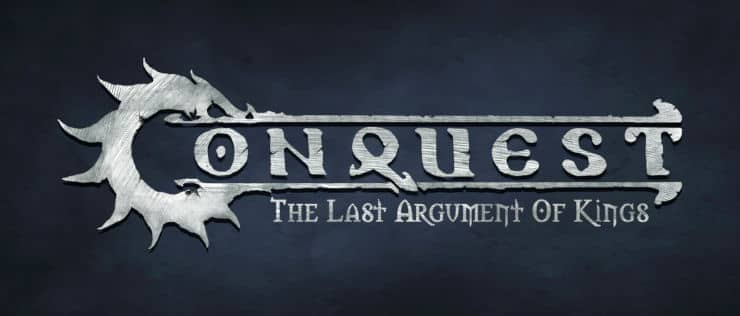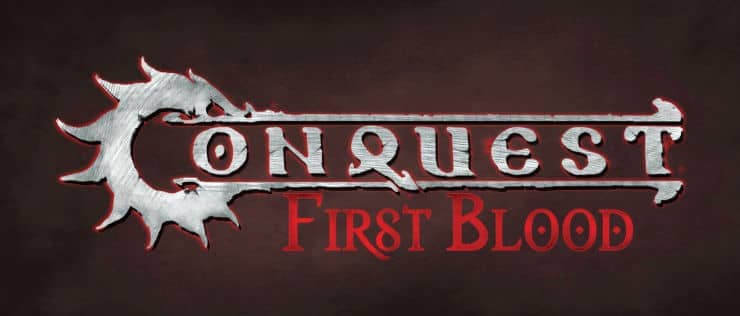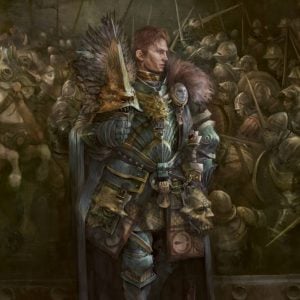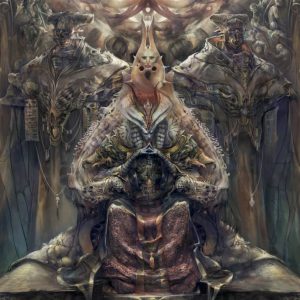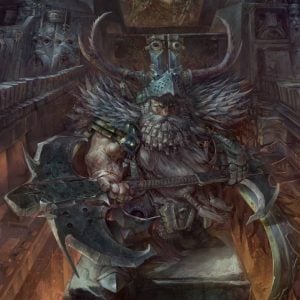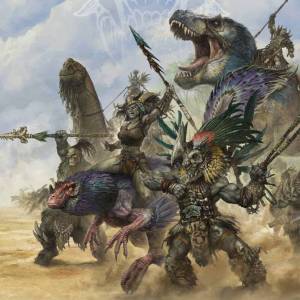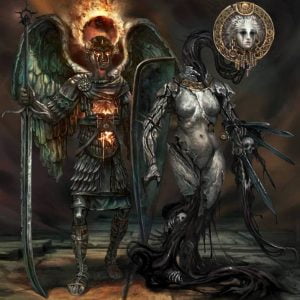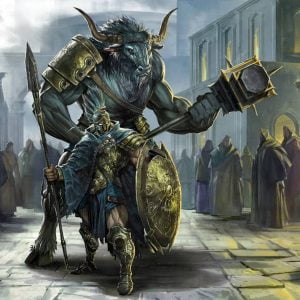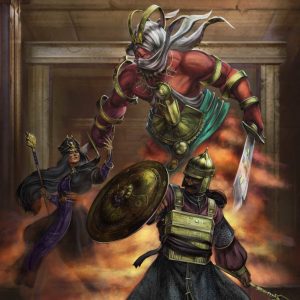The issue of faith in the Hundred Kingdoms is intrinsically linked to the Fall. The eldest of the two faiths, commonly called the Theist Church, does not deny the Fall itself. Rather, it denies its significance. They argue that it was mankind itself that Fell, not the Divinity. The divinity was cast out from heaven for its failure to guide humanity on the path of righteousness. In their doctrine, the Fall is the literal and figurative punishment of man by God, the Theos. For our failures, He cast away mankind’s greatest champion and has left us to languish without His guidance. The few believers that were spared from the Fall were Gods Chosen, and following them
is the last chance mankind has at redeeming itself. It is thus Humanity’s duty to rectify this grievous state of affairs, to move away from its life of sin and decadence and follow the Chosen of the Theos back into the light. The Theist Church is one of high ritual and deep tradition, stretching all the way back to the original practices of the Old Dominion, before the pride of man corrupted it. They enjoy tremendous support from the nobility as their doctrine of the ‘Chosen’ has been graciously extended to the nobility through the divine right of kings.
The Deist Creed, on the other hand, argues that the Fall of the Divinity was due to Mankind and its flawed vision of Perfection. They argue that God is a perfect distillation of Man, rather than Man an imperfect copy of God, and that our limited perception of this Perfection twisted what was once whole and pure through need and prayer, warping it so badly it Fell. They argue that the only way for humanity to worship the divine is by choosing to worship those Aspects we each understand and embody the best. Thus, to come closer to divinity one needs not be born among the ’Chosen’, but to embody those Aspects of the Divine as closely as possible.
Unlike the Theist Church, the Deist Creed is not a centralized religion, rather a religious movement, so forming a consensus on what exactly the Aspects are is a matter of heated theological debate. Their dogma of enlightenment and advancement through self-improvement and hard work rather than abasement and obedience, has spread like wildfire among the downtrodden, who see in this philosophy a chance to rise beyond their limited means.
As a result, religious disputes have become an extension of social differences making confrontation all but inevitable. The power of the Faith was kept in check by the Emperor and the Orders but, with the collapse of the Empire, both churches have seen their influence grow in leaps and bounds. While still limited to fielding only their dreaded bodyguards, the fanatic Sicarii, by ancient Imperial decree, the time is soon coming when neither Order influence on the Imperial Conclave nor feudal resentment at armed forces other than their own will keep the churches from resolving their theological disputes on the field of battle.

